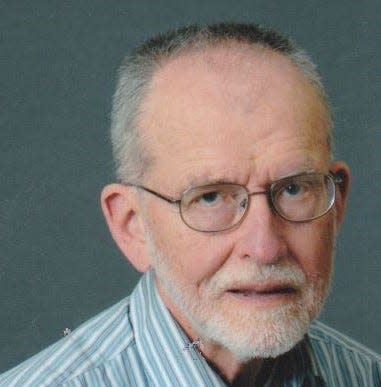Technology still way ahead of political capacity

Everyone assumed that I would become an engineer or physicist. But during my senior year in high school, I had second thoughts.
From our Vallejo, California, home, I watched predawn flashes from atomic bomb tests over in Nevada. By coincidence, I bought a used copy of Norman Cousins' book "Modern Man Is Obsolete" — an expansion of an editorial he had written in 1945 for The Saturday Review of Literature after the bombing of Hiroshima and Nagasaki.
Cousins maintained that without a world government to prevent wars, atomic weapons would destroy human civilization. I found this book, for which I had paid 10 cents, very sobering.
Why devote a career to improving technology? We obviously needed better government more urgently than technological progress.
In college I studied political science and several foreign languages, hoping to join the Foreign Service and work for world peace as a diplomat. Ultimately, though, I ended up as a college teacher and journalist.
My interest in technology remains strong despite my swerve into political science 67 years ago. I recently spent six months preparing a lecture on "wiring up the world" into a single electrical grid, a project combining technological and political considerations.
A supergrid could run the world entirely on solar energy without much need to store electricity for bad weather, nighttime or winter's low-sunlight periods, since the sun is always shining somewhere and a worldwide grid could move electricity wherever it is needed.
Solar energy could thus replace carbon fuels, continued use of which threatens the world's climate.
My lecture concluded pessimistically. Although a worldwide grid is technologically and economically feasible, we may not be able to build it soon enough. Our political capacity still lags far behind our technological abilities.
Since I bought that book in 1955, we have developed jet airliners, space travel, computers, cellphones, amazing medical technologies and the internet.
Since 1955, many countries have seen social progress. The situation of racial minorities in the U.S., for example, has improved.
But progress in political institutions, by contrast, is nearly invisible.
We still have wars and revolutions. We still lack institutions to provide peaceful resolution of disagreements about world boundaries. We still have ethnic animosities, racism, prejudice against "foreigners," religious fanaticism driving people to kill those who disagree with them.
We still have people whose desire for riches, fame or power drives them to inflame passions and con people into killing each other on a wholesale scale.
Technological progress has left political capability further behind than ever.
Although I was right about the gap between technology and our political ability to live with it two-thirds of a century ago, I was far too optimistic about the possibility of doing anything about it.
I had not yet encountered Max Weber's all too accurate words: "Politics is a slow boring of hard boards."
But there is still some hope. We have avoided atomic Armageddon, so far, but with several narrow escapes.
In real estate everything is "location, location, location." For many other purposes, everything is "timing, timing, timing." If the threat posed by carbon fuels had become acute decades ago, there would not have been any adequate way to replace them.
Fortunately, the technological progress in solar energy since 1955 now makes it possible to stop burning carbon fuels, if our political processes will let that happen.
In 1955, I was only half right. We needed both political and technological progress.
A popular song during my undergraduate years was the Kingston Trio's "Merry Minuet." It depicted all the natural disasters — like hurricanes and drought — that afflict us. It then concluded, after a reference to the "mushroom-shaped cloud" produced by atomic bombs, with the following charming words:
"They're rioting in Africa. There's strife in Iran
"What nature doesn't do to us, will be done by our fellow man."
This "merry" song, unfortunately, is timelier than ever!
Paul F. deLespinasse is professor emeritus of political science and computer science at Adrian College. He can be reached at pdeles@proaxis.com.
This article originally appeared on The Daily Telegram: Paul deLespinasse: Technology still way ahead of political capacity
